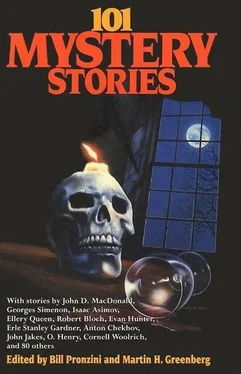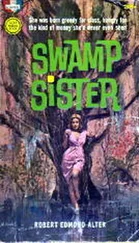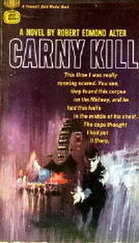Robert Alter - 101 Mystery Stories
Здесь есть возможность читать онлайн «Robert Alter - 101 Mystery Stories» весь текст электронной книги совершенно бесплатно (целиком полную версию без сокращений). В некоторых случаях можно слушать аудио, скачать через торрент в формате fb2 и присутствует краткое содержание. Город: New York, Год выпуска: 1986, ISBN: 1986, Издательство: Avenel Books, Жанр: Детектив, на английском языке. Описание произведения, (предисловие) а так же отзывы посетителей доступны на портале библиотеки ЛибКат.
- Название:101 Mystery Stories
- Автор:
- Издательство:Avenel Books
- Жанр:
- Год:1986
- Город:New York
- ISBN:978-0-517-60361-1
- Рейтинг книги:3 / 5. Голосов: 1
-
Избранное:Добавить в избранное
- Отзывы:
-
Ваша оценка:
- 60
- 1
- 2
- 3
- 4
- 5
101 Mystery Stories: краткое содержание, описание и аннотация
Предлагаем к чтению аннотацию, описание, краткое содержание или предисловие (зависит от того, что написал сам автор книги «101 Mystery Stories»). Если вы не нашли необходимую информацию о книге — напишите в комментариях, мы постараемся отыскать её.
101 Mystery Stories — читать онлайн бесплатно полную книгу (весь текст) целиком
Ниже представлен текст книги, разбитый по страницам. Система сохранения места последней прочитанной страницы, позволяет с удобством читать онлайн бесплатно книгу «101 Mystery Stories», без необходимости каждый раз заново искать на чём Вы остановились. Поставьте закладку, и сможете в любой момент перейти на страницу, на которой закончили чтение.
Интервал:
Закладка:
She did not wish anybody near her, so she shut herself up beside the body with the dog, which howled continuously, standing at the foot of the bed, her head stretched toward her master and her tail between her legs. The dog did not move any more than did the mother, who was now leaning over the body with a blank stare, weeping silently.
The young man, lying on his back, dressed in his jacket of coarse cloth torn at the chest, seemed to be asleep; but he had blood all over him — on his shirt, which had been torn off in order to administer the first aid, on his vest, on his trousers, on his face, on his hands. Clots of blood had hardened in his beard and in his hair.
His old mother began to talk to him. At the sound of this voice the dog quieted down.
“Never fear, my boy, my little baby, you shall be avenged. Sleep, sleep — you shall be avenged, do you hear? It’s your mother’s promise! And she always keeps her word, you know she does.”
Slowly she leaned over him, pressing her cold lips to his dead ones.
Then Semillante began to howl again, with a long, monotonous, penetrating, horrible howl.
The two of them, the woman and the dog, remained there until morning.
Antoine Saverini was buried the next day, and so his name ceased to be mentioned in Bonifacio.
He had no brothers, no cousins — no man to carry on the vendetta. Only his mother thought of it, and she was an old woman.
On the other side of the straits she saw, from morning until night, a little white speck on the coast. It was the little Sardinian village, Longosardo, where Corsican criminals take refuge when they are too closely pursued. They comprise almost the entire population of this hamlet, opposite their native island, awaiting the time to return. She knew that Nicolas Ravolati had sought refuge in this village.
All alone, all day long, seated at her window, she looked over there and thought of revenge. How could she do anything without help — she, an invalid, and so near death? But she had promised, she had sworn on the body. She could not forget, she could not wait. What could she do?
She thought stubbornly. The dog, dozing at her feet, would sometimes lift her head and howl. Since her master’s death she often howled thus, as though she were calling him, as though her beast’s soul, inconsolable, too, had also kept something in memory which nothing could wipe out.
One night, as Semillante began to howl, the mother suddenly got hold of an idea — a savage, vindictive, fierce idea. She thought it over until morning; then, having arisen at daybreak, she went to church. She prayed, prostrate on the floor, begging the Lord to help her, to support her, to give to her poor, broken-down body the strength she needed in order to avenge her son.
She returned home. In her yard she had an old barrel which served as a cistern. She turned it over, emptied it, made it fast to the ground with sticks and stones; then she chained Semillante to this improvised kennel.
All day and all night the dog howled. In the morning the old woman brought her some water in a bowl, but nothing more — no soup, no bread.
Another day went by, Semillante, weakened, was sleeping. The following day, eyes shining, hair on end, the dog was pulling wildly at her chain.
All this day the old woman gave her nothing to eat. The beast, furious, was barking hoarsely. Another day passed.
Then, at daybreak. Mother Saverini asked a neighbor for some straw. She took the old rags which had formerly been worn by her husband and stuffed them so as to make them look like a human body.
Having planted a stick in the ground in front of Semillante’s kennel, she tied to it this dummy, which seemed to be standing up. Then she made a head out of some old rags.
The dog, surprised, was watching this straw man, and was quiet, although famished. Then the old woman went to the store and bought a piece of black sausage. When she got home she started a fire in the yard, near the kennel, and cooked the sausage. Semillante, wild, was jumping around frothing at the mouth, her eyes fixed on the food, whose smell went right to her stomach.
Then the mother made a necktie for the dummy with the smoking sausage. She tied it very tightly around the neck, and when she had finished she unleashed the dog.
With one leap the beast jumped at the dummy’s throat, and with her paws on his shoulders she began to tear at it. She would fall back with a piece of food in her mouth, then she would jump again, sinking her fangs into the ropes, and snatching a piece of meat, would fall back again, and once more spring forward. She was tearing the face with her teeth, and the whole collar had disappeared.
The old woman, motionless and silent, was watching eagerly. Then she chained the beast up again, gave her no food for two more days, and began this strange exercise again.
For three months she trained the dog to this battle. She no longer chained her up, but just pointed to the dummy. She had taught Semillante to tear it up and to devour it without even hiding any food about the dummy’s neck. Then, as a reward, she would give the dog a piece of sausage.
As soon as she would see the “man,” Semillante would begin to tremble, then she would look up to her mistress, who, lifting her finger, would cry, “Go!”
When the widow thought that the proper time had come, she went to confession, and one Sunday morning she partook of communion with an ecstatic fervor; then, having put on men’s clothes, looking like an old tramp, she struck a bargain with a Sardinian fisherman who carried her and her dog to the other side.
In a bag she had a large piece of sausage. Semillante had had nothing to eat for two days. The old woman kept letting the dog smell the food, and goading her.
They got to Longosardo. The Corsican woman walked with a limp. She went to a baker’s shop and asked for Nicolas Ravolati. He had taken up his old trade, that of carpenter, and was working alone at the back of his store.
The old woman opened the door and called, “Nicolas!”
He turned around; then, releasing her dog, she cried, “Go!”
The maddened animal sprang for the murderer’s throat. The man stretched out his arms, seized the dog, and rolled to the ground. For a few seconds he squirmed, beating the ground with his feet; then he stopped moving as Semillante dug her fangs into his throat and tore it to ribbons.
Two neighbors, seated before their door, remembered perfectly having seen an old beggar come out with a thin black dog which was eating something its master was giving her.
At nightfall the old woman was home again. She slept well that night.
7
The Leakage
Frank Sisk
Wigmore, executive vice-president of Great Greengrocers, Inc., addressed his secretary over the intercom. “Miss Dryson.”
“Yes, A.C.”
“Has that fathead of a detective appeared yet?”
“He’s coming along the corridor now.”
“Sober, I trust. At any rate, show him in immediately.”
“Yes sir.”
“And those figures that came in last night from Store Sixty-six, I want those, too.”
“They’re right here on my desk, A.C.” The voice went a bit off focus. “Good morning. Mister Horner. We’ve been expecting you.”
A moment later Miss Dryson, holding a manila folder to her meager chest, entered Wigmore’s office in tandem with Lewis J. Horner, head of Confidential Research Associates.
Horner was hardly anyone’s conception of a private detective. Short, portly, with a dozen strands of brownish-gray hair distributed sketchily across his round head, he had the blank look one sees in paintings of medieval monks given to cheerful sessions with the grape. The only emphatic feature of his face was the nose, shaped somewhat like a plum and of similar coloration.
Читать дальшеИнтервал:
Закладка:
Похожие книги на «101 Mystery Stories»
Представляем Вашему вниманию похожие книги на «101 Mystery Stories» списком для выбора. Мы отобрали схожую по названию и смыслу литературу в надежде предоставить читателям больше вариантов отыскать новые, интересные, ещё непрочитанные произведения.
Обсуждение, отзывы о книге «101 Mystery Stories» и просто собственные мнения читателей. Оставьте ваши комментарии, напишите, что Вы думаете о произведении, его смысле или главных героях. Укажите что конкретно понравилось, а что нет, и почему Вы так считаете.












